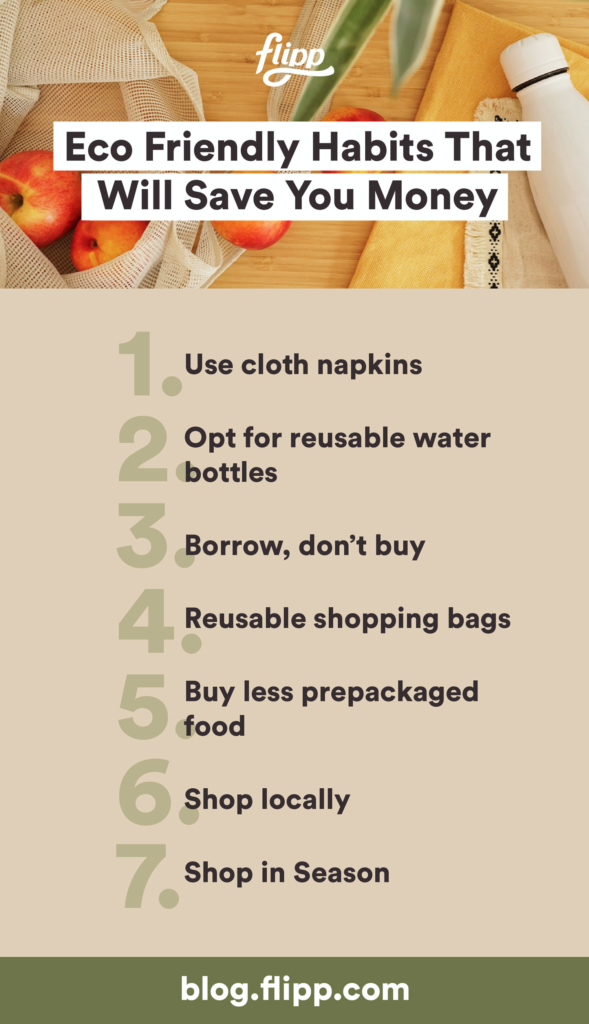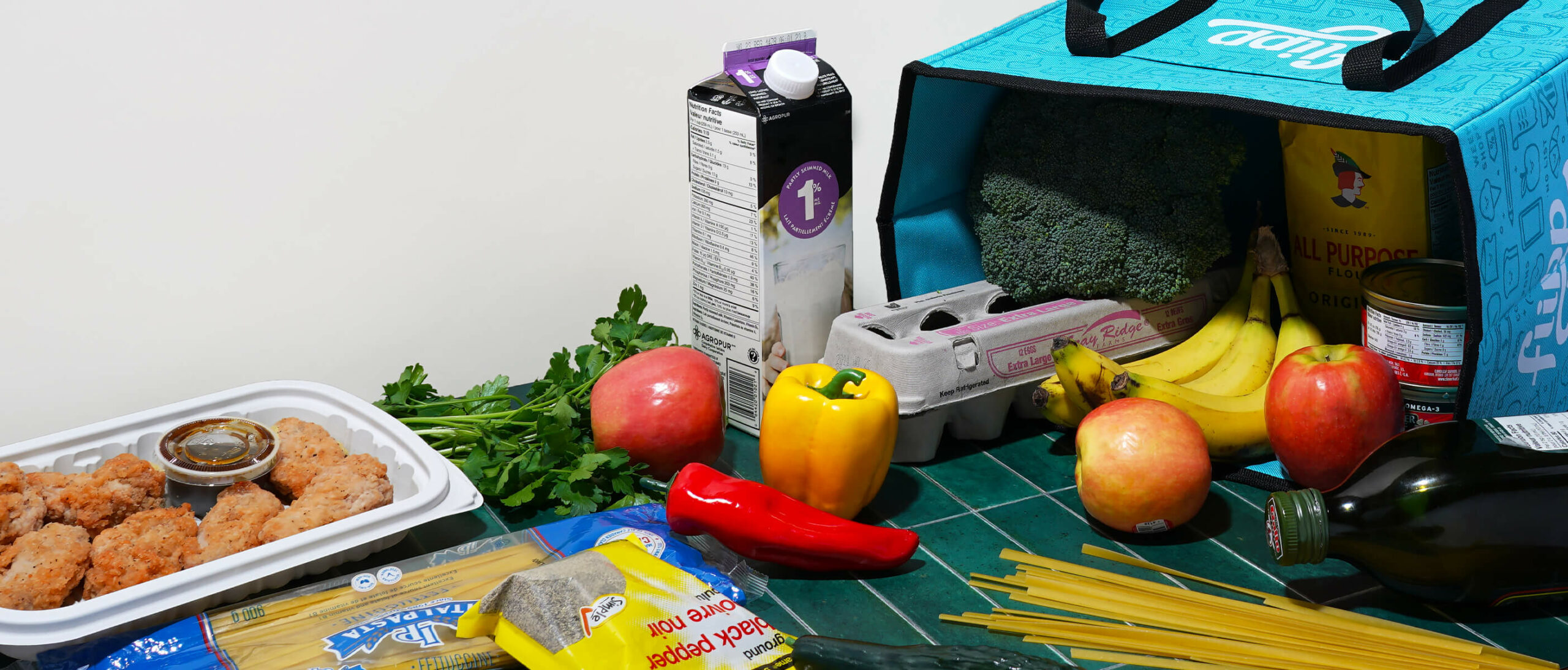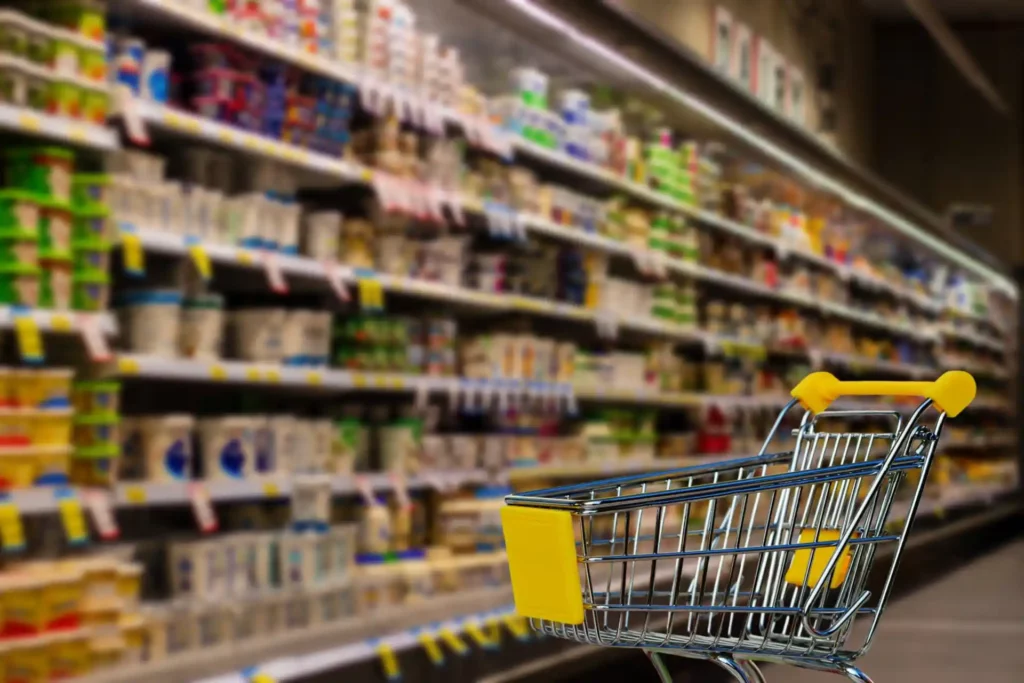Environmentally friendly and you’ll save money? What more could you ask for? These days we are all doing our best to go green, save money, and continue to educate ourselves on the newest environmentally friendly alternatives that we can adapt to on a day-to-day basis. Whether you’re here to learn how to help the environment, save some dollars, or both, we’ve outlined some tips to help get you started.
1. Use cloth napkins
Cloth napkins are not only more durable, but replacing disposable napkins for these will help you save a lot of money over time. By reducing the amount of trash you accumulate, you will also help reduce the energy and time that is used during the transporting and processing of your waste. Cloth napkins can be found at most home stores and are usually machine washable. Plus, cloth napkins give a table setting a bit of jazz and make dinner feel oh-so-fancy.
2. Opt for reusable water bottles
Keeping a sturdy, BPA free water bottle by your side is an effective and simple way to save money and the environment. Bottled water is incredibly wasteful on so many levels. More than 60 million plastic bottles end up in landfills and incinerators every day, and because of the extensive plastic production process, it takes three times the amount of water in a water bottle to produce just one. Check out Flipp for some awesome savings and deals on reusable water bottles.
3. Borrow, don’t buy
Before any big purchase, think: how often will I really use this? If the answer is “not often,” you’re better off borrowing the item from a friend instead. Check out your local listings or even opt for borrowing forums online. Forums often give you the option to trade or swap items for an extended period of time, meaning you get what you need while helping someone else with what they need.
4. Reusable shopping bags
While disposable shopping bags may come in handy, they are costly and harmful to the environment, with the average person discarding plastic bags only 12 minutes after using them. Instead of collecting a never-ending pile of single-use plastic bags, why not invest in some reusable bags? Investing in reusable bags, either canvas or hard plastic will minimize the number of disposable bags that end up in landfills. Plus, reusable bags come in all different designs and fabrics, so spark some joy while carrying the groceries home!
Flipp Tip: Most retailers charge for plastic bags, which adds up, so buying a reusable bag is saving you cash in the long run!
5. Buy less prepackaged food
Fruits and veggies that are washed, cut, and wrapped in plastic might seem convenient at first, but your wallet will start feeling the burden almost immediately. Washed and packaged fruits and veggies take more time and resources to get on store shelves, so it’s easy to see why these are often double or triple the price. Do yourself and the environment a favor by opting for whole fruits and veggies that you can wash, peel, and cut yourself, and skip the unecessary packaging. Yes, it will take a bit more prep time before cooking a meal, but the environment will thank you.
6. Shop locally
Because not everyone can grow their own garden, the next best thing is to shop locally. Not only are you probably going to get more bang for your buck, you are also helping the environment by buying produce that has not been transported from the other side of the world, which is saving on the amount of emissions sent out to the atmosphere. Shopping for local produce not only helps support local farmers and businesses, but also helps the environment.
7. Shop in season
With so many fruits and vegetables available to us year-round, it can be easy to forget when certain ones are in season. But why should this matter? Well, when a fruit or vegetable is in peak supply, the price will be much lower. In addition, growing and harvesting produce in natural, optimal weather conditions means less energy and resources are being used to produce it. If you’re wondering which fruits and vegetables are in season during the fall, check out our guide here.
These are just a few environmentally friendly tips that will save you money. There are so many ways to help save money while helping the environment, but if we all start creating a few of these habits consistently, we can truly make a change together (while saving some dollars!). Let us know your favorite tip, or share with us your own on our Facebook or Instagram pages. Find us @GetFlipp.





















